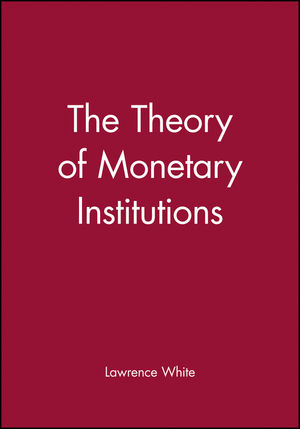The Theory of Monetary InstitutionsISBN: 978-0-631-21214-0
Paperback
288 pages
June 1999, Wiley-Blackwell
 This is a Print-on-Demand title. It will be printed specifically to fill your order. Please allow an additional 10-15 days delivery time. The book is not returnable.
|
||||||
"Larry White's The Theory of Monetary Institutions provides a very clear, extremely readable and up-to-date overview of monetary theory. White provides a uniquely insightful perspective into a difficult and controversial area, and his arguments and analysis are unbeatable. All monetary economists should read it." Kevin Dowd, University of Sheffield
"White has written an academically rigorous text covering the theory of money, banking, and monetary policy. The text stands out from others in the way it describes the evolution of economists' thinking about monetary institutions. White excels in combining the historic with the contemporary, the abstract with the tangible, and the theoretical with the practical. The chapters on alternative monetary regimes will no doubt challenge many widely-held views about the proper role of government within an economy's monetary system." James A. Overdahl
"Lawrence H. White has emerged as one of the most thoughtful monetary economists of his generation, and The Theory of Monetary Institutions fills an important lacuna in the literature. The book is mature and balanced; its encyclopedic knowledge of the literature covers a far broader range of material than conventional texts. I am aware of no other book that does such a superb job of placing institutional arrangements in theoretical and historical perspective." Hugh Rockoff, Rutgers University



